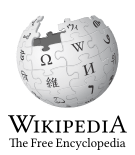
This work is a derivative of "Articles, Books, and . . . ? Understanding the Many Types of Information Found in Libraries: Reference Sources" by UC Regents, used under CC BY 4.0.
This work is licensed under CC BY 4.0 by Wellesley College LTS.
Reference or background sources such as encyclopedias
pack a lot of info into simple, easy-to-use packages.
We can help you find background sources that get an overview of a topic, look at factual information, give you ideas for keywords, get bibliographies for more high-quality sources, and more.
Encyclopedias attempt to provide comprehensive summaries of knowledge in either a specific field (subject encyclopedias) or "everything" (general encyclopedias).
Encyclopedias are typically divided into a collection of articles on discrete topics. Academically oriented encyclopedias will often include short bibliographies, making them a good resource for identifying key books and articles on a topic.

Dictionaries define words. Larger dictionaries can also include pronunciations and etymologies (the origin of words and how their use has changed over time). Some specialized types include:
Subject dictionaries: define technical terms in specific fields, sometimes in as much detail as an encyclopedia
Bilingual dictionaries: define words in a different language
Thesauri: provide synonyms
Rhyming dictionaries
Handbooks are sources which gather useful facts, terminology, and standards related to a specific field or profession. They're particularly common in the sciences, where they include formulas, constants, lab procedures, and medical protocols.
Almanacs and yearbooks summarize the current state of the world, a nation, an organization, an industry, or other topic. They often include statistics; in the case of statistical yearbooks, that's all they have.